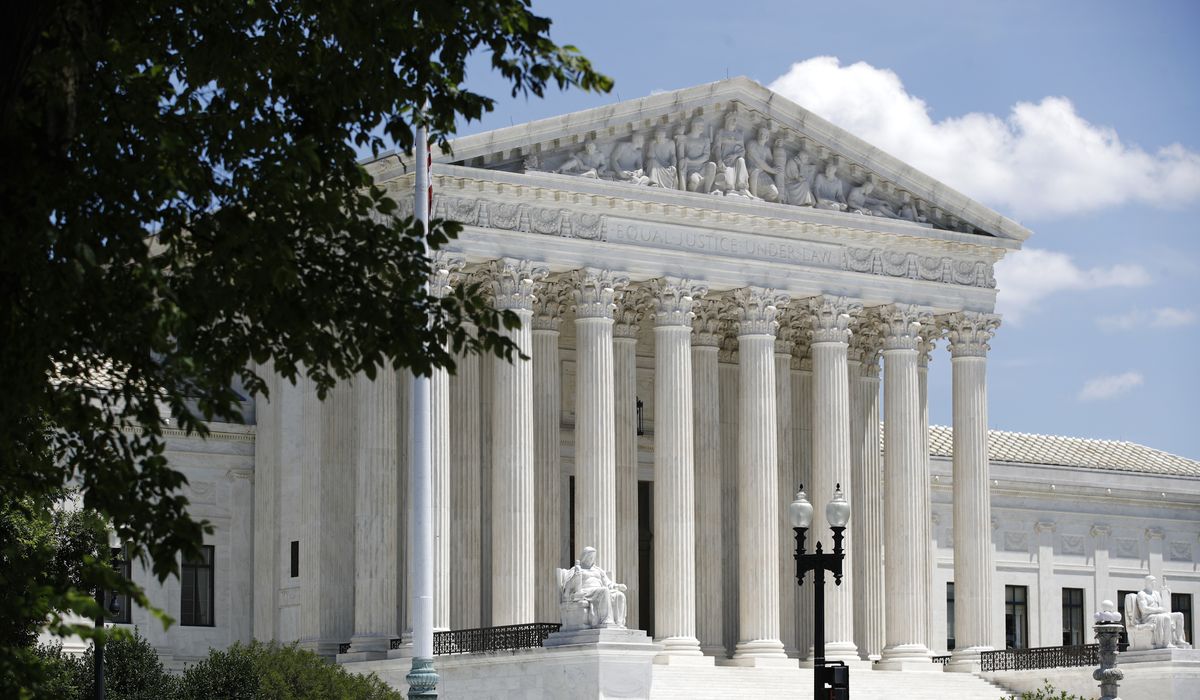Supreme Court to decide fate of Roe v Wade in upcoming term

The Supreme Court could overrule its nearly 50-year precedent on abortion during the upcoming term in a case out of Mississippi where the state has asked the justices to uphold its ban on abortions after 15 weeks.
It’s potentially the year’s most highly watched case â€" especially after the justices declined to block a Texas law earlier this month that bans abortions after a fetal heartbeat is detected, usually around six weeks of pregnancy.
“The Texas case shows us this is not an issue that is going away,†said Carrie Severino, chief counsel of the Judicial Crisis Network.
“Trying to kick the can down the road … would be continuing to throw this issue back in the court,†she added, saying the justices need to clarify its precedent on abortion. “For the good of the clarity of the constitutional issue, it makes sense to address the issue squarely.â€
In the Mississippi case, state officials argue that the state’s ban on abortions after 15 weeks is lawful under the Constitution and that the court’s ruling in the 1973 case of Roe v. Wade should be overturned because it’s outdated.
The court held in Roe v. Wade that women have a right to an abortion up until viability, a ruling was later reaffirmed in Planned Parenthood v. Casey in 1992.
Mississippi, though, said that the viability standard set out in Roe is unclear, and the state has an interest in banning abortions after 15 weeks to protect women’s health â€" and the health of the unborn child.
In its court filing, the state noted the risk to the mother increases after 15 weeks when undergoing an abortion.
“The risk of the mother’s death from abortion at 16 to 20 weeks’ gestation is 35 times more likely than at eight weeks, and the relative risk of mortality increases by 38% for each additional week at higher gestations,†the brief read.
The legal battle was brought by Jackson Women’s Health Organization, the state’s only abortion clinic, and a doctor who provides abortions. According to court papers, the clinic provides abortions up to 16 weeks gestation.
They challenged the state’s Gestational Age Act enacted in 2018. The law bans abortions after 15 weeks unless there was a medical emergency or severe abnormality within the fetus.
The abortion providers told the court in its filing that the state’s interest in the woman’s health and child doesn’t begin until viability, which is “months†after the 15-week marker set in the law.
“Viability is the point in pregnancy when ‘there is a reasonable likelihood of the fetus’ sustained survival outside the womb, with or without artificial support,’†Jackson Women’s Health Organization argued in its court papers. “Before viability, the State’s interests, whatever they may be, cannot override a pregnant person’s interests in their liberty and autonomy over their own body.â€
A federal district court sided with the abortion clinic and issued an injunction halting the law from being enforced. The 5th U.S. Circuit Court of Appeals affirmed the district court’s decision.
Mississippi officials took the case to the Supreme Court, and at least four of the nine justices voted to hear the case. The court announced in May it would review the matter when it returns from summer recess. The upcoming term begins in October.
A specific date for oral arguments has not yet been scheduled, but a ruling is expected by the end of June 2022.
In its opinion, the high court will decide whether bans on elective abortion before a fetus is viable â€" such as Mississippi’s law â€"- are constitutional and give states the right to set their own abortion bars.
Several other states have passed increasingly strict laws aimed at cutting back on abortion.
North Dakota aimed to limit abortion after six weeks, and Arkansas moved to ban abortion after 12 weeks. Both states had federal courts bat down their bans in 2015. The high court declined to take those cases in recent years.
Most recently, Texas enacted a law banning abortion after a fetal heartbeat is detected, usually around six weeks. The law allows private citizens â€" not the state â€" to sue abortion providers for violating the law.
The high court refused to block its enforcement, which began Sept. 1.
Texas abortion providers â€" and the Justice Department â€" have challenged that legislation, arguing it is unconditional.
Legal experts said the way the justices rule in the Mississippi case could be a factor on whether they’ll reconsider the Texas legislation.
Curt Levey, president of the Committee for Justice, said he would be surprised if the justices upheld the Texas law as constitutional, but that could give them a path to siding with Mississippi in its abortion ban.
“In a sense, the Texas law is helpful because now the court can say it is being moderate if it upholds the Mississippi law and strikes down the Texas law. It can say it is compromising,†Mr. Levey said.
Meanwhile, Elliot Mincberg, senior fellow at People for the American Way, said the justices not blocking the Texas law on emergency request from abortion providers is a “pretty troubling sign.â€
“It strongly suggests that the court will eviscerate â€" if not overrule â€" Roe and the whole viability test,†he said. “It sends a disturbing signal.â€
Sign up for Daily Newsletters
0 Response to "Supreme Court to decide fate of Roe v Wade in upcoming term"
Post a Comment